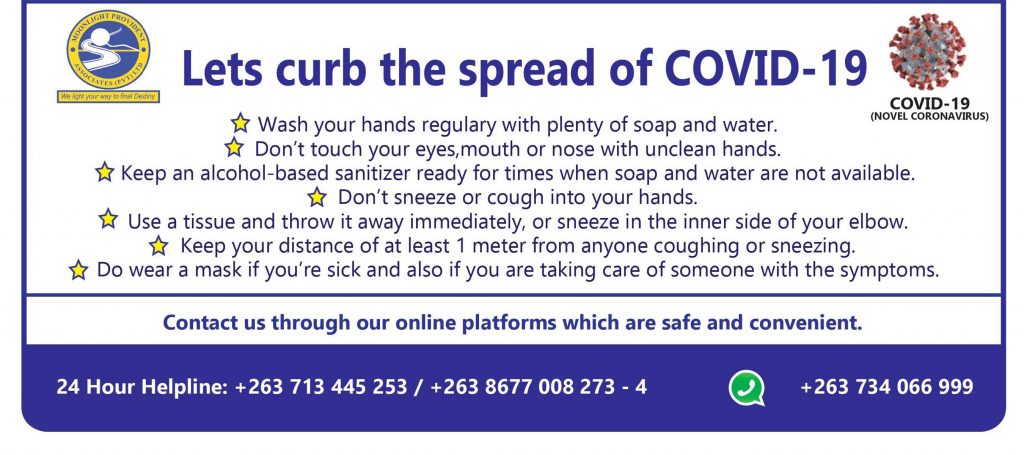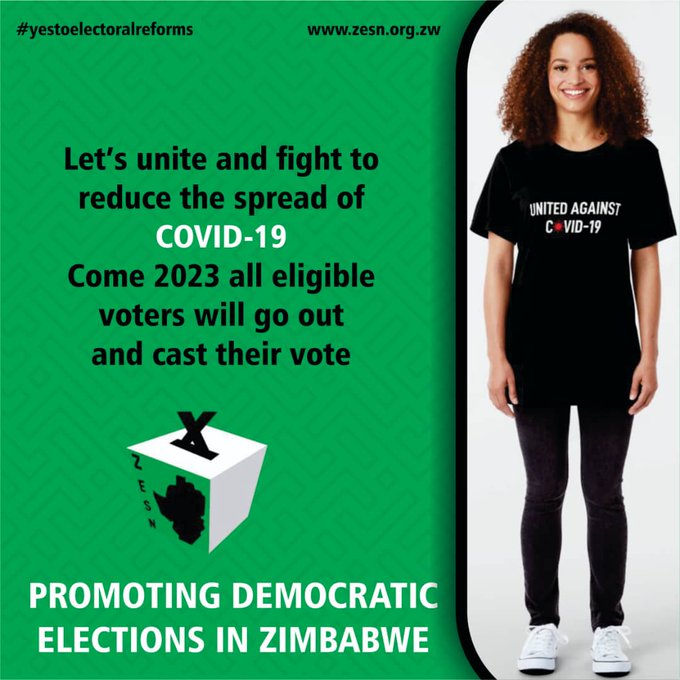By Zimbabwe Election Support Network (ZESN)
1. INTRODUCTION
In the wake of the declaration by the World Health Organisation of COVID-19 as a global pandemic and in keeping with section 27(2) of the Civil

Protection Act Chapter 10:06, the Government of Zimbabwe declared the COVID-19 a state of disaster to facilitate the enactment of a raft of extraordinary measures necessary to assist and protect persons affected or likely to be affected by the disaster in any area within Zimbabwe. The government promulgated lockdown measures that allow for the restrictions on the right to movement. While these measures are necessary, they have had some unintended effects like impeding on the enjoyment of the right to earn an income, among other rights.
The Army has been deployed to support the Police’s enforcement of the lockdown. ZESN appreciates the crucial role of the uniformed forces (police and army) in enforcing the lockdown order, as well as the challenging environment in which they are executing their duties. However, ZESN has received reports of some violations of basic rights by those tasked with enforcing the lockdown order.
In pursuit of sustained accountability and transparency, in government’s response against COVID-19, a summary of these are highlighted in this report to demonstrate the need for the uniformed forces to receive human rights training to equip them with the knowledge on how to balance enforcement of the lockdown order with safeguarding the basic rights of civilians.
2. MINISTRY OF HEALTH SUMMARY OF UPDATES
The Ministry of Health and Child Care has been providing daily updates on Covid 19 via the Ministry’s social media accounts and also the Ministry’s Website.
As of 5 May 2020, 14 821 screening and Diagnostic Tests have been done.
To date Zimbabwe has 34 Confirmed Cases, including 5 recoveries and four deaths. The table below shows the distribution of the cases.
| Province | No. of Conformed Cases | |
| 1. | Matabeleland North | 1 |
| 2. | Bulawayo | 12 |
| 3. | Harare | 13 |
| 4. | Mashonaland East | 5 |
| 5. | Mashonaland West | 3 |
| Total | 34 |
Source2 : Ministry of Health and Child Care
3. SUMMARY OF FINDINGS
This update is informed by reports from ZESN’s Long Term Observers resident in the 210 National Assembly
Constituencies. A summary of the issues raised by the observer reports are highlighted below:
3.1 LIVELIHOOD ISSUES
Across the Country, citizens are finding it increasingly difficult to fully comply with the lockdown order owing their unique economic realities. A hand-to-mouth existence is a reality for the majority of citizens who are either low income earners or rely on economic activities that are of an informal nature, such as vending.
A Clean-up campaign was conducted throughout the country by both rural and urban municipalities, building and structures belonging to informal traders were destroyed. It would have been proper for the authorities to provide alternative trading sites for the informal traders as it is part of their mandate to support the development of different classes of businesses including those that are of a small-medium scale nature.
3.2 POLITICISATION OF FOOD AID
The World Bank estimates that in Zimbabwe extreme poverty has risen from 29% in 2018 to 34% in 2019, an increase from 4.7 to 5.7 million people[1]. The World Bank further notes that Annual inflation reached 230% in July 2019 (compared to 5.4% in September 2018), with food prices rising by 319% in July 2019 while non-food inflation increased by 194%.
[1] https://www.worldbank.org/en/country/zimbabw e/overview
The forgoing statistics demonstrate that a significant number of Zimbabweans were food insecure, even before the advent of the COVID-19 pandemic. This category of Citizens has become even more vulnerable due to the inability to engage in income-generating activities.
In response Government and private sector, philanthropists and NGOs are making concerted efforts to mobilising food hampers to those in need, since the commencement of the lockdown. These efforts have however been marred by reports of partisan distributions of food aid.
3.3 ESCALATION OF COST OF LIVING
Reports have been received especially in urban areas, which indicates that the cost of basic commodities continues to increase. In some instances especially in urban areas, some shops are refusing payments via mobile money platforms in favour of cash payments in either ZWL dollars or US dollars.
| 3.4 PUBLIC OUTREACH ON PREVENTIVE MEASURES |
Concerted efforts are being made by the Government, Non-Governmental Organisations, Faith-Based Organisations, and Private Sector to raise awareness of some of the preventative measures that should be taken to help stop the spread of the Corona Virus.
| 3.5 VIOLATION OF PHYSICAL DISTANCING |
Violations of this requirement were reported throughout all the Constituencies, whenever people queued for government-subsidized mealie meal as well as other basic commodities such as mealie meal. Physical distancing was not observed at vegetable markets as well, especially in
the first two weeks of the first phase of the lockdown. However encouraging reports were also received that physical distancing was being observed in queues for public sector transport, and at funerals.
3.6 ENFORCEMENT OF LOCKDOWN
Reports were received from of instances where Police and Army were heavy handed in their dispersing of people in crowded places as shopping malls, and shebeens, bottle stores that were operating on contravention of the lockdown order.
4 RECOMMENDATIONS
- There is a need for CSOs to coordinate with the Government in their efforts to provide Personal protective equipment (PPE) and basic goods to the most vulnerable citizens.
- Specialised human rights training for members of the uniformed forces is required to equip them with information on how to balance discharging their duties and safeguarding basic human rights.
- There is a need for the Government to provide updates on how it has distributed the food aid mobilised using public funds or donated by wellwishers.






